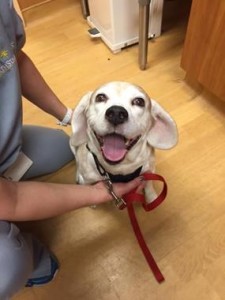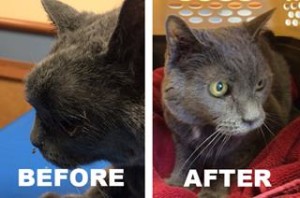-
Recent Posts
Archives
- October 2022
- August 2022
- May 2022
- March 2022
- January 2022
- December 2021
- September 2021
- July 2021
- June 2021
- May 2021
- April 2021
- February 2021
- January 2021
- November 2020
- October 2020
- September 2020
- June 2020
- April 2020
- March 2020
- February 2020
- January 2020
- December 2019
- November 2019
- October 2019
- September 2019
- June 2019
- March 2019
- February 2019
- January 2019
- December 2018
- November 2018
- October 2018
- August 2018
- July 2018
- June 2018
- May 2018
- April 2018
- March 2018
- February 2018
- January 2018
- December 2017
- November 2017
- October 2017
- September 2017
- August 2017
- July 2017
- June 2017
- May 2017
- April 2017
- March 2017
- February 2017
- January 2017
- December 2016
- November 2016
- August 2016
- July 2016
- June 2016
- May 2016
- April 2016
- March 2016
- February 2016
- January 2016
- December 2015
- November 2015
- October 2015
- September 2015
- August 2015
- July 2015
- June 2015
- May 2015
- April 2015
- March 2015
- December 2014
- June 2014
- May 2014
- April 2014
- November 2013
- September 2013
- August 2013
- July 2013
- June 2013
- May 2013
- March 2013
- January 2013
- November 2012
- October 2012
- July 2012
- December 2011
- November 2011
- October 2011
- September 2011
- August 2011
- July 2011
- June 2011
- May 2011
- April 2011
- March 2011
- February 2011
- January 2011
- December 2010
- November 2010
Categories
4 Oncology cases that make this veterinarian love her job
I often get asked why I practice Oncology, and there are two reasons. One is that I can often extend good quality of life for longer than most clients realize. And the second reason is that I get to know my clients well and develop a relationship with them. The exciting part of Oncology is that it is ever-changing with new therapies. Here are four of my favorite patients who did better than their initial diagnosis would have predicted.
 I first saw Ellie as a 10-year-old Beagle with thyroid carcinoma. Her disease, unfortunately, had already progressed to her lungs. We started her on a new drug developed for dogs with mast cell tumors, called Palladia (toceranib). Within three weeks, the tumor in her neck had gotten smaller and within six weeks it was gone. Her last recheck was in June 2015, one-and-a-half years after her diagnosis, and she was still doing well. What is special about her case is the drug she responded to has not been published to work for this tumor, but has a biologic reason to work.
I first saw Ellie as a 10-year-old Beagle with thyroid carcinoma. Her disease, unfortunately, had already progressed to her lungs. We started her on a new drug developed for dogs with mast cell tumors, called Palladia (toceranib). Within three weeks, the tumor in her neck had gotten smaller and within six weeks it was gone. Her last recheck was in June 2015, one-and-a-half years after her diagnosis, and she was still doing well. What is special about her case is the drug she responded to has not been published to work for this tumor, but has a biologic reason to work.
 Lexi came to me as a 12-year-old Yorkie. She was diagnosed with mast cell tumors. Her cancer was so severe, that two weeks after surgery, her disease was already returning. We started her on Kinavet (masitinib) and as of her last recheck a few weeks ago, she was still doing well and in complete remission. She is now 15 months out from the start of her treatment when her prognosis was less than 3 months.
Lexi came to me as a 12-year-old Yorkie. She was diagnosed with mast cell tumors. Her cancer was so severe, that two weeks after surgery, her disease was already returning. We started her on Kinavet (masitinib) and as of her last recheck a few weeks ago, she was still doing well and in complete remission. She is now 15 months out from the start of her treatment when her prognosis was less than 3 months.
 Mollie initially came to me as a 12-year-old Labrador. She was diagnosed with metastatic lung cancer. We started her on an intravenous chemotherapy (vinorelbine) that has good penetration to the lungs. Mollie lived 18 months after her diagnosis. Without treatment, Mollie would have been expected to survive 1-2 months. Nearly 40% of her lungs had cancer in it and it is remarkable how long she lived.
Mollie initially came to me as a 12-year-old Labrador. She was diagnosed with metastatic lung cancer. We started her on an intravenous chemotherapy (vinorelbine) that has good penetration to the lungs. Mollie lived 18 months after her diagnosis. Without treatment, Mollie would have been expected to survive 1-2 months. Nearly 40% of her lungs had cancer in it and it is remarkable how long she lived.
 One of my most gratifying cases is Ashley. She is a 14-year-old cat. She came in with a large tumor on her head that cytology returned as lymphoma. After her first dose of chemotherapy, she was in complete remission and continues to do well more than six months from the time we met her. Why I find Ashley’s case so gratifying is that this is an unusual presentation for a common disease with a great response.
One of my most gratifying cases is Ashley. She is a 14-year-old cat. She came in with a large tumor on her head that cytology returned as lymphoma. After her first dose of chemotherapy, she was in complete remission and continues to do well more than six months from the time we met her. Why I find Ashley’s case so gratifying is that this is an unusual presentation for a common disease with a great response.
All these patients, during treatment, have had a good quality of life. If a pet is diagnosed with cancer, even bad cancer, it does not always carry a poor prognosis. These cases are just some good examples of why I love my job.
 Jennifer Kim, DVM, DACVIM (Oncology)
Jennifer Kim, DVM, DACVIM (Oncology)
Dr. Kim grew up in New York and received her BA from the University of Pennsylvania in 1998. After spending two years at the National Cancer Institute performing cancer genetic research, she attended veterinary school at Tufts University, graduating in 2003. Dr. Kim completed a rotating internship at the Animal Medical Center in Manhattan, New York and then an oncology internship at Cornell University. She initially began at NorthStar VETS as an emergency clinician in 2005 and returned in January 2010 to treat oncology patients after completing a residency in medical oncology at Michigan State University.
The information presented on this web site is not intended to take the place of your family veterinarian’s advice and is not intended to diagnose, treat, cure or prevent any disease. Discuss this information with your own veterinarian to determine what is right for your pet. All information is intended for your general knowledge only and is not a substitute for medical advice or treatment for specific medical conditions. We can not and do not give you medical advice via this blog. The information contained in this online site and emails is presented in summary form only and intended to provide broad understanding and knowledge. The information should not be considered complete and should not be used in place of a visit, call, consultation or advice of your veterinarian. We do not recommend the self-management of your pet’s health problems.
This entry was posted in Pets, Veterinary Medicine and tagged intravenous chemotherapy, Jennifer Kim, Kinavet, lymphoma, masitinib, mast cell tumors, metastatic lung cancer, NorthStar VETS, oncology, Palladia, thyroid carcinoma, toceranib, vinorelbine. Bookmark the permalink.





Leave a Reply